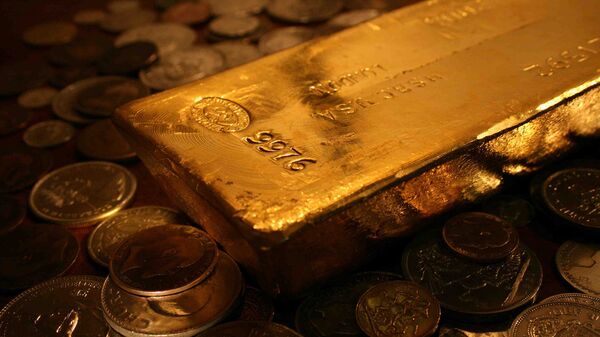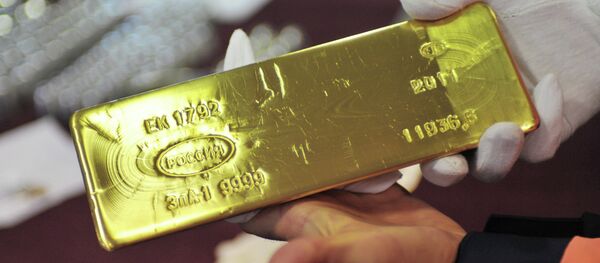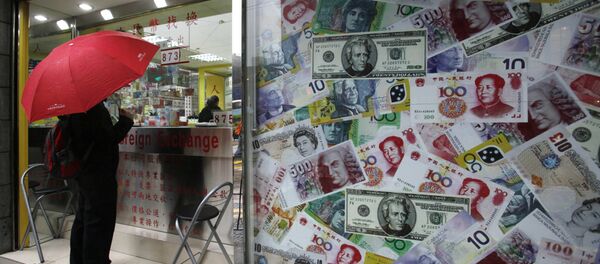Citing former US Federal Reserve Chair Alan Greenspan, Chinese economic observer Jin Zihou suggested that the Chinese renminbi would deal a lethal blow to today's financial system if Beijing converted its $4 trillion assets into gold.
Still the US dollar remains the "biggest player," accounting for 60 percent of global reserves. However, many countries are seeking ways to limit the power of the US dollar and become less dependent on it.
According to Jin Zihou, the only way for Beijing to end the US dollar's reign is to accumulate a significant amount of gold, namely 30,000 tons. In this case, China will be able to challenge America's longstanding dominant position in the global trade and financial markets.
#Gold exports to #China from #Switzerland almost doubled to 46.4 tonnes in March, up from 23.6 tonnes in February — http://t.co/lPiksDu0yY
— World Gold Council (@GOLDCOUNCIL) 28 апреля 2015
Remarkably, Alasdair Macleod, a researcher and former Executive Director at an offshore bank in Guernsey and Jersey, pointed out that between 1983 and 2003 China could have secretly accumulated almost 20,000 tons of gold.
#Chinese and #Indian #Gold Buying: At the Peak since January 2014 http://t.co/Ind2DgYnvM pic.twitter.com/1E3QmQdmRm
— World Gold Council (@GOLDCOUNCIL) 24 апреля 2015
"Since 2002, the Chinese state has almost certainly acquired by these means a further 5,000 tons or more," the expert suggested.
He elaborated that by liberating public gold ownership in 2002 and forming the Shanghai Gold Exchange, Beijing has reduced the need for currency intervention to halt the renminbi rising.
"Therefore the Chinese state has probably accumulated between 20,000 and 30,000 tons since 1983, and has no need to acquire any more through market purchases given her own refineries are supplying over 500 tons per annum," the expert emphasized.
Moreover, Beijing is encouraging de-dollarization among the Shanghai Cooperation Organization members. The Russo-China energy deal concluded in the yuan and the ruble in 2014 was heralded by experts as a signal of a potential shift from one type of monetary system to another.
However, Western economists express doubts over China's volume of gold reserves. According to some estimates, China's Central Bank could hold up to 3,510 tons of gold in 2009, making China the second largest owner of gold behind the United States with its 8,133.5 tons.
#OfficialGoldHoldings of top 10 countries as on May 2015 #WorldGoldCouncil #MonthlyStatistics #JhunjhunwalasFinance pic.twitter.com/vSeBR7cpq4
— Jhunjhunwalas (@jhunjhunwalas4u) 8 мая 2015
At the same time, according to the latest report released by the World Gold Council, the market development organization for the gold industry, China occupies seventh place in the list of the World's official gold holdings with only 1,054.1 tons of gold reserves.
According to Duowei News, a US-based media outlet, it is unlikely that China's gold holdings have already reached 30,000 tons. Still, no one will argue that China has been accumulating gold on a large scale in recent years, while its international influence and position in global trading has been strengthening tremendously. The Chinese economy is likely to outpace the United State by 2016 and it is not excluded that finally the yuan will replace the US dollar as the world's main reserve currency.




